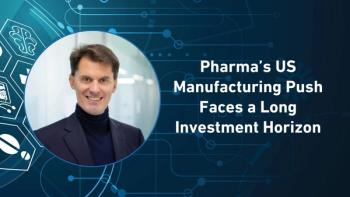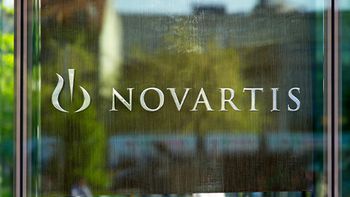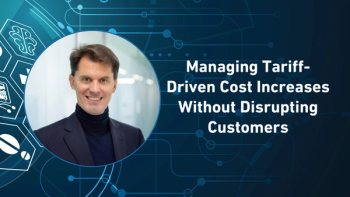
AI Fuels Surge in Counterfeit Drug Websites
In the final part of his Pharma Commerce video interview, Mark Lee, MarqVision’s founder and CEO, warns that pharmaceutical companies are facing an exponential rise in counterfeit threats as AI accelerates the creation of fake websites, social media profiles, and manipulated product catalogs, making urgent investment in protective technologies a critical priority.
In a video interview with Pharma Commerce, Mark Lee, MarqVision’s founder and CEO, highlights the rapid growth and increasing sophistication of the counterfeit pharmaceutical market, driven in large part by bad actors leveraging artificial intelligence (AI). Counterfeiters are now using AI to replicate authentic pharmaceutical packaging with high accuracy, build convincing fake websites, and manipulate search algorithms—including SEO—to lure vulnerable patients. Generative AI tools make it easier than ever to clone legitimate sites, trick search engines, and present fraudulent products as genuine.
Lee emphasizes that counterfeit pharmaceuticals pose a far greater threat than other counterfeit goods, such as luxury handbags, because fake drugs directly endanger patient health and bypass stringent safety regulations. Consuming these unregulated substances can lead to severe health consequences, making counterfeit medications both a public health crisis and a criminal enterprise.
According to Lee, these bad actors are evolving at an alarming pace—so quickly that even advanced anti-counterfeiting teams struggle to keep up. At MarqVision, the company reportedly employs top-tier engineers, including former Google software engineers, to develop AI tools capable of identifying and shutting down these threats. However, the speed and adaptability of counterfeiters make the challenge ongoing and complex.
Lee explains that it’s now possible to completely copy an official pharmaceutical company’s website, such as Pfizer.com, within seconds using code-replication tools. These fake sites often use slightly altered domain names—like “Pfizer.in” or “Pfizermedications.com”—and are nearly indistinguishable from the originals. As a result, the proliferation of such sites is growing, amplifying the risks to patients who may unknowingly purchase and consume counterfeit drugs.
Ultimately, Lee underscores that the combination of advanced AI tools and the high stakes of counterfeit pharmaceuticals is creating a rapidly evolving threat landscape—one that demands equally sophisticated and fast-moving countermeasures to protect consumers and maintain the integrity of the drug supply chain.
He also comments on the specific vulnerabilities in the global pharmaceutical supply chain that are most commonly exploited by counterfeiters; the key advantages of using AI-powered systems to detect and intercept counterfeit drugs compared to traditional anti-counterfeit methods;the role healthcare companies and regulators play in combating counterfeit medicines; and much more.
A transcript of his conversation with PC can be found below.
PC: Looking ahead, what threats should pharma companies be preparing for as counterfeiters become more technologically advanced?
Lee: I think AI is driving more and more fake problems, and that includes more fake websites that are selling illicit drugs. Illicit means it could be fake drugs, or it could be unauthorized sales of prescribed medications, so I think we're really seeing an exponential rise of these websites.
For a lot of these websites for our own customers today, including pharma companies—but also just looking at everything—for some brands we have seen a 70-time increase in the number of fake websites over the course of 12 months.
From the eyes of pharmaceutical brands, I think everybody is already aware that AI has the potential to exacerbate the problem, but I think what we're seeing is that it is really getting out of control. I think pharmaceutical companies should be aware that the pace of these problems is really accelerating, and they need to invest in technology now in order to properly tackle this problem. This is not just fake websites, but also fake social media profiles. We see thousands of Telegram chat rooms being installed as we speak, and also these fake product catalogs, every image, every video, everything can be manipulated today. I think the rise of AI really comes with a lot of benefits, but also, it has a lot of side effects. I think that's something that these pharmaceutical companies should definitely be aware of.
Newsletter
Stay ahead in the life sciences industry with Pharmaceutical Commerce, the latest news, trends, and strategies in drug distribution, commercialization, and market access.




